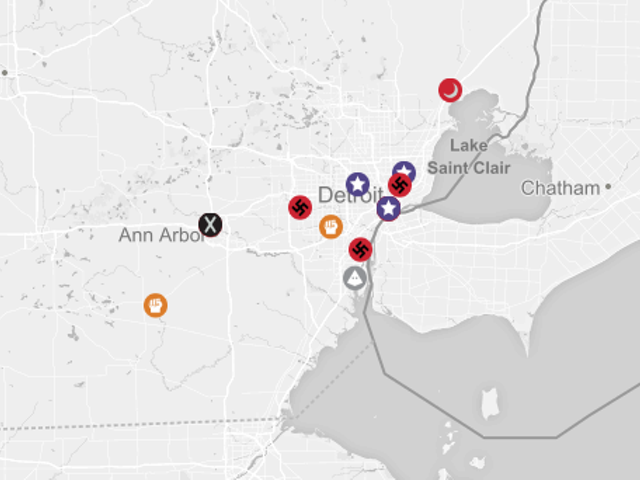DTE begins cutting power to last 'smart meter' holdouts
[
{
"name": "GPT - Leaderboard - Inline - Content",
"component": "35519556",
"insertPoint": "5th",
"startingPoint": "3",
"requiredCountToDisplay": "3",
"maxInsertions": 100
}
]
DTE has begun shutting off power to southeast Michigan customers who've refused to let the utility replace their analog meters with digital electronic "smart meters" that some have claimed cause health problems ranging from insomnia to heart palpitations.
Two Ann Arbor residents tell Metro Times they've been shut off since Monday morning. Linda Kurtz of the Smart Meter Education Network, which aims to bring awareness to what it describes as the harmful electromagnetic frequencies and microwave radiation that smart meters emit, said she was aware of two other customers who'd been shut off. At total of 11 people had received shut off notices, she said.
Diane Bell, 82, has for years had two locks on her analog meter and a sign posted declaring she does not want a smart meter. On Tuesday, she watched three DTE employees climb over her back fence, walk through her yard, and shut off her electricity.
"I'm really trying to make a statement on how dangerous these are," Bell said in a phone call to Metro Times. "I have an irregular heart beat, my 91-year-old husband has neuropathy and has had a heart bypass. I've read the literature on these [smart meters] and do not want to risk it."
"Smart meters" — which send electricity usage data directly to DTE via a wireless signal, eliminating the need for meter readers — have sparked privacy and health concerns among a small group of customers since the utility began installing them in 2008. Now, with about 3 million smart readers installed and the system wide changeover from analog to digital nearly complete, DTE has begun cutting electricity to the last holdouts.
The company says the shutoffs are necessary because locked meters are illegal under Michigan law, and that customers who've had their service cut received multiple warnings to remove locks and prepare for the changeover. DTE says those customers were also informed of an "opt-out" program that eliminates the wireless signal sending data to the utility.
But according to Kurtz, the opt-out does nothing for people who suffer from electromagnetic hypersensitivity like herself.
"These meters create dirty electricity," says Kurtz, who is a craniosacral therapist. "I can't be anywhere with a smart meter. I live my life in my house. If I go to the grocery story and spend more than 20 minutes in there, I'm not sleeping that night."
DTE officials have claimed there are "numerous studies" that show the technology is not associated with any health risks, while Kurtz and her cohort have pointed to research that says the opposite.
But even if there was no data to back up their claims, those opposed to the digital smart readers say their concerns should be considered regardless.
"It used to be when kids said they were allergic to [peanuts], people would laugh." said Laszlo Slomovits of Ann Arbor — one of the holdouts who had his power cut off. "But now they see people are allergic. Even if you feel that you yourself are not affected by a smart meter, to deny a person who is the right to live without one is just plain wrong."
Slomovits is using a generator for electricity for now, but says he'll succumb to adopting the opt-out meter and "see how it goes."
But Kurtz, who expects her power to be cut off any day now, says she's too sensitive to take that chance.
"If they put that so-called opt-out meter on my home it will generate ... a spiky-pulsed electro magnetic field that hits my cells and causes all kinds of physiological changes," she says. "Nothing will make my home safe for me except the electricity coming through an analog meter from DTE."
For now, Kurtz says she'll run a generator when she's not in the house, because she believes it too creates "dirty electricity."
She and others who say they're hypersensitive to electromagnetic frequencies remain hopeful that a bill known as the "Analog Choice Bill" will pass the state legislature. According to MLive, it has bipartisan support.





